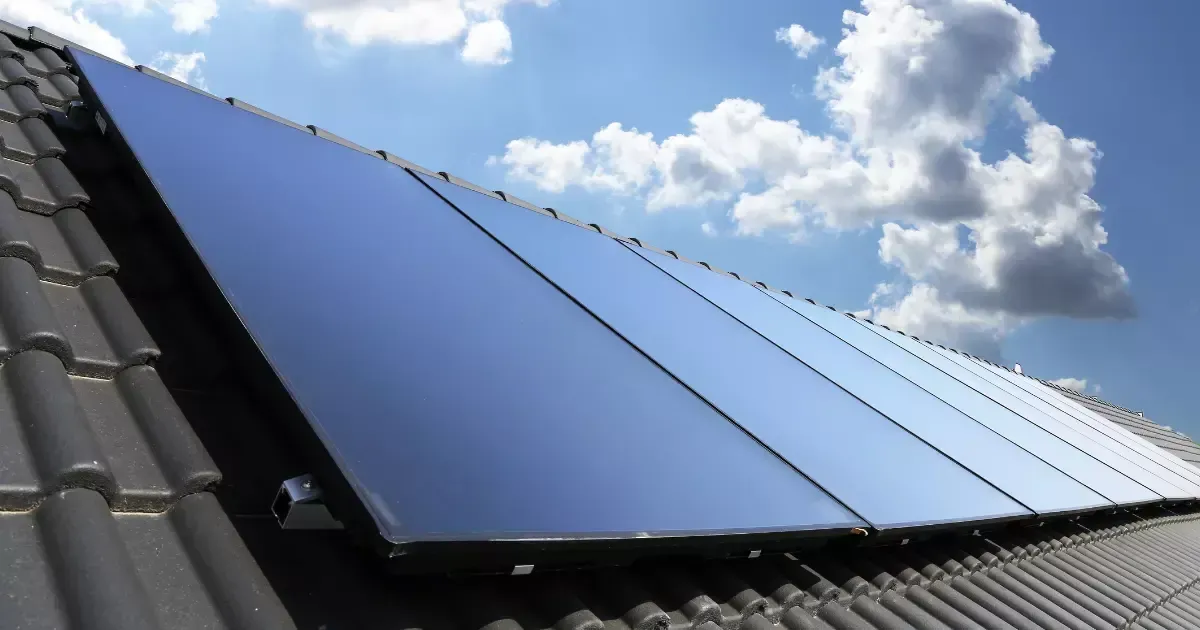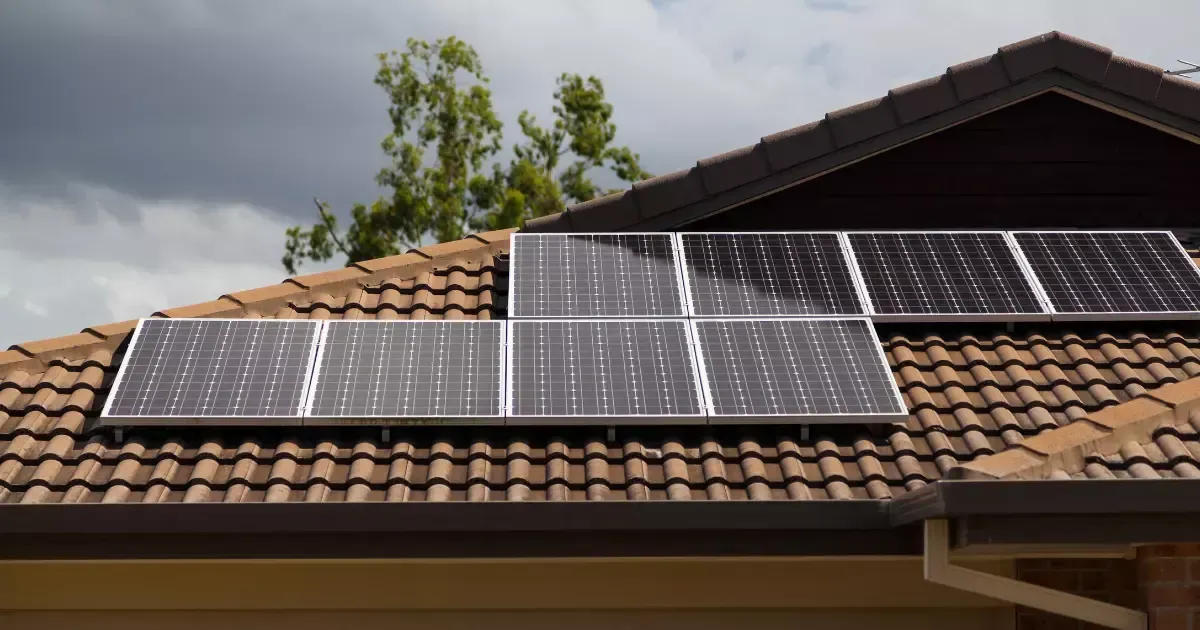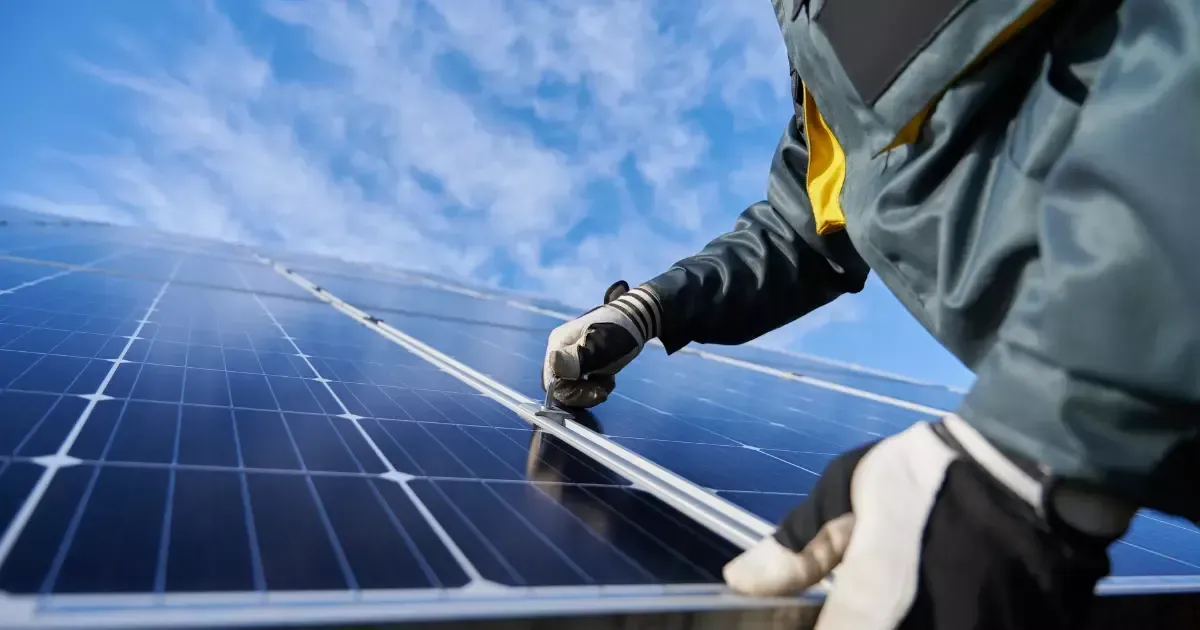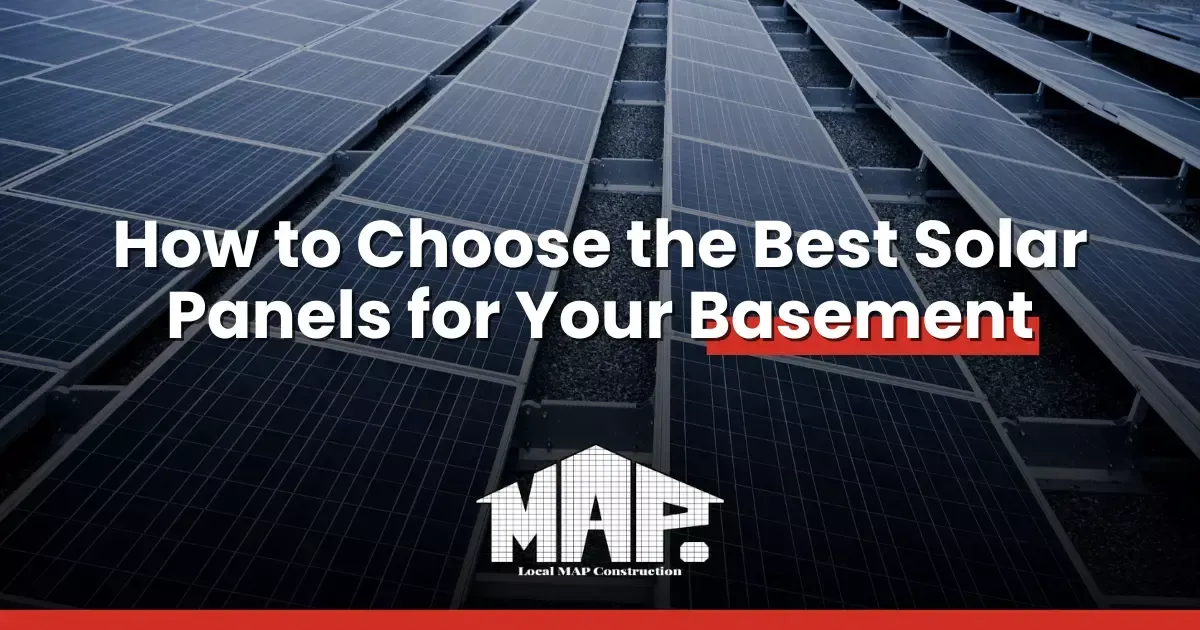More homeowners are using solar panels for basement spaces to reduce energy bills and power areas like home gyms or guest suites. But real savings depend on choosing the right system and the right installer. Read to know how to choose the best setup for your basement space.
What Are Solar Panels for Basement Use

Solar panels for basement setups are designed to generate enough solar power to meet the energy needs of a basement area. These systems often connect to your existing solar array or run independently using off-grid components. Paired with battery storage, they offer power for lighting, appliances, HVAC systems, and even solar basement ventilation systems. The setup can use rooftop solar, ground-mounted solar panel systems, or hybrid solutions. With the right system size, you can make the most of your basement’s potential.
How Solar Panels Power a Basement
Basements powered by solar panels function just like other areas of the home. Energy from solar photovoltaic panels is captured and sent through a direct current power supply, then converted by a grid-tie inverter into usable electricity. That power can be directed directly into outlets or stored in absorbent glass mat batteries for backup. With the help of a charge controller, the system keeps the energy flow steady. The setup may also include a sub-panel, a main breaker, and proper junction box connections to stay safe and efficient.
What to Look for in the Best Basement Solar Panels

Solar panels for basement setups are not all the same. You need a system that fits your basement’s layout, energy load, and long-term plans. It’s important to work with a professional who can design a system tailored to how you actually use the space.
Energy Output and Efficiency Ratings
A good solar system for basement use should deliver strong energy output and high efficiency. Choose photovoltaic panels that perform well in shaded or low-light conditions. This is important if your basement needs consistent power during daylight hours. Efficient panels produce more electricity from the same amount of sunlight. This helps reduce your dependency on the grid and lowers monthly energy costs.
Size, Weight, and Space Considerations
The size and weight of your system are important, especially in older or space-limited basements. Compact solar panels and lightweight mounts are ideal for small areas. If you're using a solar-powered kit, make sure the components are compatible and easy to install. For outdoor installations, compare ground mounts, pole-mounted systems, or tracking mounts for the best fit. Each option comes with different space needs and structural requirements.
Battery Compatibility and Storage Options
To keep your basement powered during outages, pair your panels with reliable battery storage. Look for solar panels that work well with AGM batteries or other sealed battery types. Storage is essential if you want off-grid freedom or backup power. Batteries store excess energy produced during the day for use at night or when the grid fails. This setup adds security and consistency to your home energy system.
Indoor and Outdoor Installation Factors
Choose between powering your whole home or just your basement. Rooftop solar often powers the entire house, while ground-mounted systems can be customized for basement-only use. Use quality materials like DC PV cable, MC4 connectors, and flexible metal conduit to meet safety and electrical standards. These components help protect your wiring and improve performance. A clean, code-compliant installation ensures long-term reliability.
What Does It Cost to Install Solar Panels for a Basement?

The cost of solar panels for basement use varies based on your equipment, battery needs, and whether you want grid-tied or off-grid power. The total cost also includes equipment, labor, and your choice of solar financing options. Some homeowners also qualify for tax credits and rebates that bring costs down.
Equipment and Accessories
Costs can vary widely depending on the solar energy technologies you choose. You'll likely need parts like PV wires, a junction box, a charge controller, a sub-panel, and other components. These items are essential for system performance and safety. Choosing top-tier brands from a premium solar supply house may increase your upfront investment. However, high-quality materials often last longer and perform better over time.
Labor and Service Costs
Working with a licensed solar installer adds to the total cost but is worth the investment. They handle important tasks like electrical wiring, panel connections, and mounting. Labor also includes thorough inspections and safety checks, such as main breaker testing. This ensures your system meets local codes and operates reliably. Skilled service helps avoid long-term problems and protects your home.
Credits, Rebates, and Financing
Don’t miss out on savings from the solar tax credit and federal tax credit. These can significantly reduce your installation costs. Local community solar programs may offer additional financial perks. Be sure to ask about solar loan rates, interest rates, and available payment plans. Many financing options let you bundle both equipment and installation into one manageable cost.
How to Choose the Right Solar Panels for Your Basement
Choosing the right solar panels comes down to balancing your energy needs, budget, and the skill of your installer. A thoughtful approach leads to better performance, long-term savings, and fewer issues down the road. Let’s break down what matters when picking the best setup for your basement.
Estimate Energy Needs
Start by understanding how much electricity your basement uses each day. This includes lighting, appliances, heating, or cooling systems installed in the space. Knowing your usage helps determine the correct system size. You can use a basic online energy calculator to get a rough estimate. For more accurate results, consult a trusted solar company.
Compare Brands and Warranties
Choose well-known solar panel brands with a strong track record of reliability. Look at the efficiency rating, warranty terms, and overall build quality. Check the price per watt to evaluate cost-effectiveness. Good service, support, and warranty coverage can save you time and money later. Always verify customer reviews and performance data before deciding.
Common Buying Mistakes
Avoid buying a system without knowing the right panel type, tracking systems, or storage options. Many buyers skip proper sizing, which affects performance. Ignoring local codes or building regulations can delay your project. Failing to check compatibility with your circuit breaker or electrical panel may lead to costly fixes. Research first or talk to a professional before buying a solar panel.
Hire a Professional Installer
Always choose a licensed solar installer for your project. They understand local regulations and know how to keep your system safe and code-compliant. A professional will handle permits, panel placement, and proper wiring. They also conduct final checks to verify that everything runs smoothly. Hiring the right expert gives you peace of mind and better long-term results.
Read also: 8 Reasons Businesses Choose Commercial Solar Panels Today
Frequently Asked Questions
Can solar panels fully power a basement?
Yes. With the right system size and setup, your basement can run entirely on solar power, especially if it’s energy-efficient. Many basements use less energy than the rest of the home, making them ideal for a smaller solar array. You’ll want to assess your lighting, HVAC, appliances, and entertainment systems to determine demand. Once the right capacity is installed, your basement can be powered independently or as part of a whole-home solution.
Do I need a battery with my basement setup?
You don’t have to, but adding battery storage provides backup power during grid outages. A battery system stores excess energy generated during the day so you can use it at night or during blackouts. It also helps you manage energy use more efficiently. Without a battery, you’ll rely on the grid when solar isn’t generating. If you want continuous, off-grid operation, a battery is strongly recommended.
What size solar system works for a basement?
It depends on your basement’s energy needs. Most setups range from small 1kW units to larger arrays, depending on appliances and usage. A finished basement with HVAC, lighting, and electronics will require more solar power than a simple storage area. Use a solar calculator or consult a contractor to find your exact energy use. This will help you size your system accurately and avoid underproduction or overspending.
Can I install solar panels just for my basement?
Yes. You can install a standalone solar-powered kit or connect it to an existing solar array through a separate sub-panel. This is a great option if you want to power your basement independently from the rest of your home. Some homeowners use this approach for rental units or home offices. A professional installer can help set up the configuration that fits your goals.
How much does it cost to install solar panels for a basement?
Costs vary by location, equipment, labor, and available tax credits. The type and number of panels, inverter, mounting system, and whether you include a battery will all affect pricing. On average, you might spend a few thousand dollars, but solar financing or local community solar incentives can help lower that. Your long-term savings will depend on how much electricity you offset.
Wrapping
Choosing solar panels for your basement is more than a trend. It's a smart, long-term investment. A well-installed system helps reduce your energy bills, gives you more control over usage, and can even boost your home's value. It also supports energy independence and sustainable living, making it a win for both your wallet and the environment.
Ready to move forward? Start by listing your basement's energy needs. Then, explore financing options and get quotes from certified local installers. Skip the shortcuts and work only with experienced professionals in residential solar.
At
Local Map Construction, we make solar simple and tailored to your space. Call us at 970-218-1620 to discover the right solar setup for your home.

